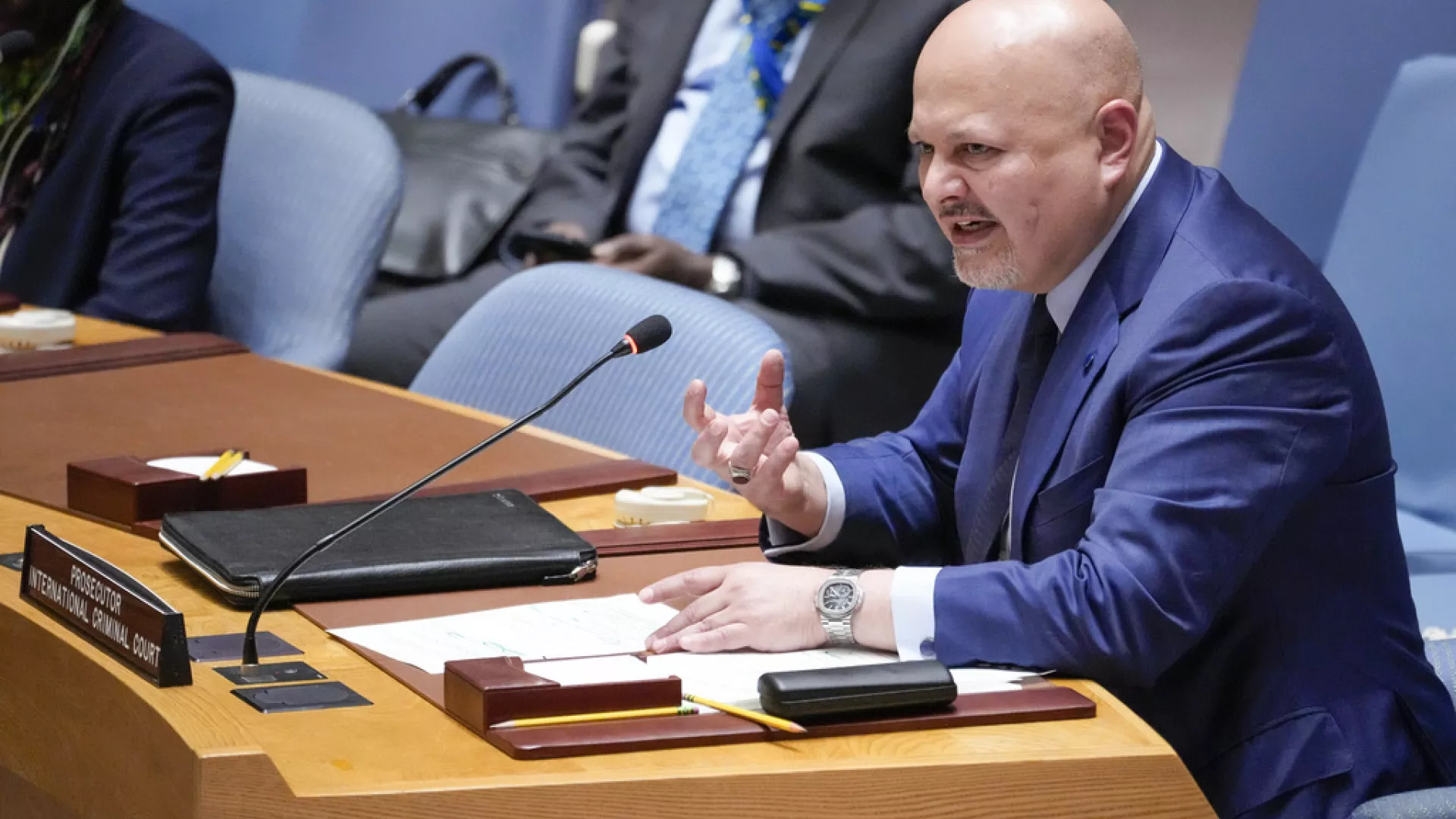The chief prosecutor of the International Criminal Court (ICC), Karim Khan, is set to undergo an external investigation into allegations of sexual misconduct.
This announcement comes from the governing body of the court, which has stated that the inquiry will focus on claims related to Khan’s conduct towards a female employee.
Since these serious allegations surfaced last month, there has been considerable behind-the-scenes discussion among the ICC’s member states regarding how to conduct the investigation. The court has been working to determine the best way to respond to these claims.
Also Read:ICC Future Looks Bleak, As Erosion of Trust Deepens
Päivi Kaukoranta, president of the Assembly of State Parties (ASP), explained that the decision to pursue an external investigation is aimed at ensuring a completely independent, impartial, and fair process. She noted that the ASP is still finalizing the details of the investigation and confirmed that the court’s internal watchdog would no longer handle the case. However, she did not disclose who would be conducting the external inquiry.
The allegations against Khan reportedly include claims of unwanted sexual touching and other forms of abuse over an extended period, as well as accusations of coercive behavior and misuse of authority. Khan, who is 54 years old, has denied all allegations through his lawyers. He expressed his willingness to engage with the investigation, stating, “I welcome the opportunity to engage in this process.”
![ICC prosecutor Karim Khan is facing allegations over sexual misconduct [Getty]](https://www.newarab.com/sites/default/files/styles/large_16_9/public/1234638139.jpeg?h=199d8c1f&itok=M9I8FvNN)
The woman making the allegations, a lawyer in her 30s who worked for Khan, has chosen not to comment publicly. However, sources indicate that she is open to cooperating with an independent investigation.
WATCH:
As news of the investigation circulated, concerns grew within Khan’s office, which employs around 450 staff members. Many expressed unease about how Khan has managed the situation and some have suggested that he may be framing the allegations as part of a smear campaign against him. In fact, several senior staff members have urged Khan to step back from his role until the investigation is complete.
Also Read:Africa Questioning ICC’s Next Move In Silence
In response to the ASP’s announcement, Khan stated that he will continue in his role as prosecutor but will delegate matters related to the allegations to his two deputy prosecutors. “At my request, a coordination group chaired by the deputy prosecutors, acting independently and not reporting to me, has already taken responsibility for addressing all relevant issues connected to this matter,” he said. He reassured that he would continue all other functions as prosecutor in line with his mandate.
This external inquiry will take over from the internal investigations that Khan had initially requested from the court’s watchdog—a move that some of his staff had opposed due to concerns about its impartiality.
The delay in establishing an external inquiry has raised alarms among ICC insiders, who worry that it could provide ammunition for those looking to undermine the court’s credibility. This concern is particularly relevant given Khan’s ongoing efforts to secure arrest warrants for Israeli Prime Minister Benjamin Netanyahu and his former defense minister over alleged war crimes and crimes against humanity in Gaza.
As this situation develops, many within Khan’s office are anxious about how pro-Israeli interests might exploit these allegations. There is also a growing concern among senior staff regarding Khan’s public handling of the issue and its potential impact on the ICC’s reputation and mission.
Karim Asad Ahmad Khan, 54, a British lawyer, is an expert in international criminal law and human rights law. He has served as the ICC’s chief prosecutor since February 2021, following his election to the post.
Before this role, Khan was an assistant UN secretary-general, special adviser, and head of the UN investigative team for prosecuting ISIS crimes in Iraq.
Khan began his career in international law in 1997 and is a lifetime member of the Human Rights Institute of the International Bar Association and the founding director of the Peace and Justice Initiative, an NGO focused on implementing the ICC’s Rome Statute at national levels.







Excellent web site. Plenty of useful information here. I’m sending it to a few friends ans additionally sharing in delicious. And naturally, thanks in your sweat!